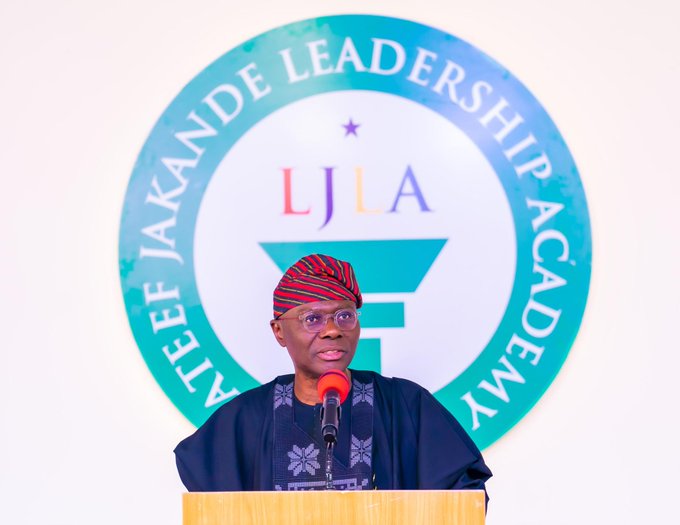Lagos State has firmly denied rumors that it plans to ban the sale or use of sachet water, popularly known as ‘pure water.’
The clarification came after a viral video circulated online, showing people bursting sachets of water at factories and on buses, leading to widespread speculation that the Lagos State Government was behind the destruction.
Tokunbo Wahab, the Commissioner for Environment and Water Resources, addressed the issue in a statement released on Sunday.
Wahab explained that the individuals seen in the video were not officials from the Lagos State Government, as had been assumed by many.
The Commissioner confirmed that those responsible for the destruction of the sachets were enforcement officers from the National Agency for Food and Drug Administration and Control (NAFDAC).
NAFDAC’s Enforcement Action
According to Wahab, the actions of these officers were part of an ongoing enforcement exercise aimed at removing sachet water that did not meet NAFDAC’s health and safety regulations.
“This exercise is not related to any ban by the Lagos State Government,” Wahab emphasized.
The video had sparked confusion, with many viewers mistakenly believing that Lagos authorities were taking drastic steps to ban sachet water entirely in the state.
However, the Commissioner made it clear that the primary focus of the state government was on regulating plastic waste management rather than outlawing the widely consumed sachet water.
The State’s Position on Sachet Water
Wahab reiterated that there were no plans to ban the sale or use of sachet water in Lagos.
He clarified that the state government remains committed to sustainable waste management and environmental protection.
“Our focus remains on effective plastic waste management,” Wahab said. “Sachet water is an important product consumed by millions of Lagosians, and there are no plans to ban it.”
The confusion arose after the video showed what appeared to be officials destroying sachets of water, which led some to believe it was part of a new government policy.
But Wahab’s statement sought to clear the air, urging the public to disregard the misinformation.
Lagos’ Plastic Waste Management Strategy
Lagos State has been grappling with the issue of plastic waste for years, given the city’s large population and high consumption of plastic products, including sachets.
As part of its efforts to tackle this growing problem, the state government is introducing measures like the Extended Producer Responsibility (EPR) program.
The EPR mandates producers of plastic products, including sachet water, to take responsibility for managing the waste their products generate.
Producers of polyethylene terephthalate (PET) bottles, sachets, and carrier bags must contribute to waste management programs, helping to reduce the environmental impact of these plastics.
Wahab explained that this initiative would be supported by the establishment of a Plastic Waste Management Fund.
The fund will be financed by contributions from producers and major importers of plastic products, aimed at addressing the challenges of plastic waste.
This collaborative effort with Producers and Producer Responsibility Organizations (PROs) aims to reduce plastic pollution and improve waste management practices in the state.
Clearing Up the Confusion
The confusion surrounding the supposed ban was fueled by the viral video, which showed people destroying sachets of water in public spaces.
While many assumed the actions were linked to a government ban, Wahab clarified that NAFDAC is the agency responsible for enforcing food safety regulations.
This includes ensuring that sachet water is produced under hygienic conditions and meets health standards.
Wahab took the opportunity to assure the public that the Lagos State Government remains committed to working with all stakeholders to promote responsible waste management while supporting businesses in the state.
“The Lagos State Government is focused on fostering dialogue and working with all relevant stakeholders to ensure that we achieve sustainable waste management,” Wahab said.
He emphasized that the state government’s goal is to create a cleaner, healthier environment while balancing the needs of the public with the need for effective waste management.
“The Ministry is fully committed to fostering dialogue and collaboration to address the challenges of plastic waste in the state,” Wahab added.

